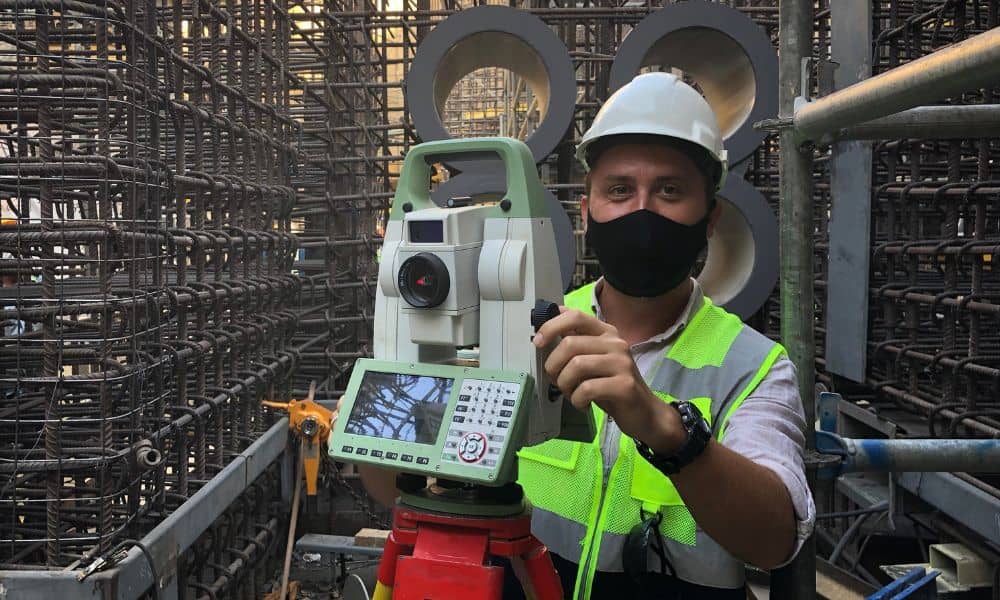
If you’re investing in commercial property, you already know the stakes are high. Buyers, lenders, and title companies all want the same thing: a deal with no surprises. That’s where an ALTA survey comes in. More than a simple map, it’s the document that keeps every player in a transaction on the same page.
In Lake Havasu’s fast-growing market—where land near the lakefront and highways is in demand—skipping this step can lead to costly setbacks.
What Makes an ALTA Survey Different?
At first glance, you might think an ALTA survey is just another boundary survey. It’s not. While a standard survey shows property lines, a land title survey goes further. It ties together the legal details of title insurance with what actually exists on the ground.
That means it includes boundaries, improvements, easements, rights-of-way, and zoning details, all in one report. In Lake Havasu—where sites range from downtown parcels to desert-edge developments—those details matter. A basic survey can’t provide the same level of clarity.
Why Buyers and Investors Rely on ALTA Surveys
For buyers and investors, confidence is everything. An ALTA survey confirms that the deed matches the land and that there are no hidden encroachments.
For example, imagine closing on property near the London Bridge district only to discover later that part of a neighboring building sits on your lot. Without this survey, that issue may come to light too late. With it, you know early enough to renegotiate or walk away. That kind of clarity protects both your money and your peace of mind.
Why Lenders Require an ALTA Survey
Lenders are cautious for a reason. Before financing a commercial project, they need to know the property is secure. An ALTA survey gives them that assurance by confirming legal access, locating utilities, and flagging potential conflicts.
For instance, if a lot lacks road access or has a sewer line running through its buildable area, the lender sees it upfront. As a result, they can adjust loan terms or deny financing. Without a reliable land survey, banks would be lending blind—and that’s never an option.
Why Title Companies Rely on ALTA Surveys
Title insurance depends on accuracy. That’s why title companies won’t extend coverage without current ALTA surveys—they need proof that nothing on the property conflicts with the legal description.
These surveys often reveal details that basic surveys miss. For example, one might show a utility easement stretching across half the parcel. That discovery changes how the title company insures the deal. Without it, the risk could go unnoticed until a costly claim arises later.
How an ALTA Survey Supports Developers

Developers are transforming desert parcels into shopping centers, resorts, and mixed-use spaces. For them, the ALTA survey is more than paperwork—it’s a planning tool.
It shows where buildings, parking lots, and utilities can safely go while staying compliant with local codes. In addition, it helps confirm zoning and setback rules before construction begins. In short, it saves developers from delays, redesigns, and expensive mistakes.
Clarity That Prevents Disputes
Commercial property deals often involve many voices—buyers, sellers, lenders, attorneys, and city officials. An ALTA survey gives everyone the same clear picture of the property.
Disputes are less likely to arise when the facts are visible. Whether it’s a neighbor claiming part of a lot or a city inspector questioning setbacks, the survey reduces uncertainty and keeps projects moving forward.
ALTA Survey as Risk Management
Buying or developing property without an ALTA survey is risky. You could face encroachments, lawsuits, or zoning conflicts after closing. In high-value deals, those risks multiply quickly.
This detailed commercial property survey acts as risk management. It identifies issues before the deal closes, protecting the investment long after the ink dries. For properties worth millions, that protection is critical.
Misconceptions About the ALTA Survey
A few myths still linger:
- “It’s optional.” In reality, lenders and title companies almost always require it.
- “It’s the same as a regular survey.” Not true. The American Land Title Association created this standard to provide much more detail.
- “Only lenders benefit.” Buyers, sellers, and developers all gain from the clarity it provides.
Understanding this helps everyone see why the ALTA survey isn’t just a formality—it’s essential.
Building Confidence and Closing Deals Faster
When all parties trust the information, transactions move faster. An ALTA survey builds that trust. Lenders feel secure funding the deal. Title companies can insure without hesitation. Buyers and sellers gain peace of mind.
In a fast-moving market like Lake Havasu, confidence is what makes the difference between a smooth closing and a stressful one.
Conclusion
At the end of the day, a commercial property deal is only as strong as the information behind it. In Lake Havasu, where investment opportunities continue to grow, the ALTA survey is the document that keeps everyone aligned.
It prevents disputes, protects investments, and ensures no one is blindsided by hidden risks. For buyers, lenders, title companies, and developers, the ALTA survey is more than a requirement—it’s the foundation of trust in every commercial real estate deal.
So before you sign, build, or break ground, make sure your first step is securing an ALTA survey. It’s the smartest way to protect your deal and your future.





